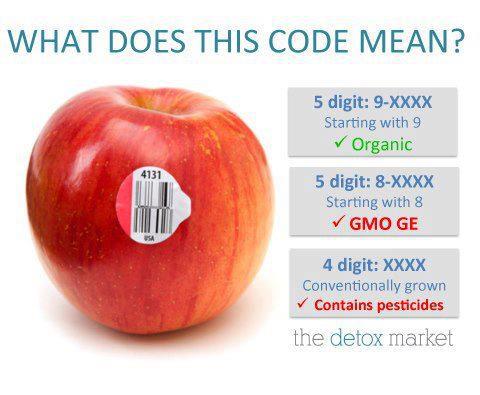Did you see the article by Dr. Oz in Time last month?
Surprisingly, he claimed that genetically modified foods (GMOs) were the same as organic, belittling organic food buyers and users as “snooty” and “elitists.” The odd thing is that it contains a seeming change of heart for Dr. Oz, since just last spring, an episode of his show presented a much more balanced exploration of the controversy.
 If you’re confused by the terms used to define foods today, you aren’t alone. It can be complicated. GMOs are foods that are biologically engineered, at the DNA level, to enhance their survival during growth or their nutrition and longevity afterwards. Another advantage is that with the larger yields of more resistant products, prices can be keep lower. The foods most commonly altered are corn, soybean, canola and cotton seed oil.
If you’re confused by the terms used to define foods today, you aren’t alone. It can be complicated. GMOs are foods that are biologically engineered, at the DNA level, to enhance their survival during growth or their nutrition and longevity afterwards. Another advantage is that with the larger yields of more resistant products, prices can be keep lower. The foods most commonly altered are corn, soybean, canola and cotton seed oil.
Organic foods are at the other end of the spectrum, raised without chemicals or genetic engineering. According to the USDA, to merit an organic label, the food must be
produced by farmers who emphasize the use of renewable resources and the conservation of soil and water to enhance environmental quality for future generations. Organic meat, poultry, eggs, and dairy products come from animals that are given no antibiotics or growth hormones. Organic food is produced without using most conventional pesticides; fertilizers made with synthetic ingredients or sewage sludge; bioengineering; or ionizing radiation.
Opponents of GMOs point to a long list of harmful effects. These include organ damage, disorders of the gastrointestinal and immune systems, reduced fertility and even accelerated aging. The American Academy of Environmental Medicine (AAEM) thus suggests physicians prescribe non-GMO diets for all their patients.
So here’s the problem: There is little middle ground. Consumers seem to be highly polarized, either dismissing concern as new age paranoia or unable to trust the word of the agri-corporate defenders. It’s gone so far that although almost 9 out of 10 Americans want any GMOs to be clearly labeled for purchase, the companies producing the foods are shying away from labeling. And that may not be a big surprise, considering that more than half of Americans asked said they would avoid buying GMOs.
But without those labels, how do you know what you’re getting?
Start by looking for those annoying little PLU stickers on your produce. Each will have a code number on it, usually at the bottom. If the code number is 4 digits long and starts with a 3 or a 4, it was conventionally grown. That means herbicides and pesticides were used. Or the code may have 5 digits and begin with an 8 or a 9. A 9 on the PLU sticker means it was raised organically. An 8 means you’re looking at the fruits of genetic manipulation and possibly exposed to chemicals. too.

But what about animal products? They’re being modified, as well. Are they any safer? If you have faith in the Food and Drug Administration (FDA), then at least genetically engineered salmon must be safe since they just approved it for sale and consumption. You can expect to see GMO salmon on the table as soon as later this year. The genetic alteration will cause GMO salmon to mature to a marketable size in 1/2 the time, 18 months instead of the usual 3 years. Nice, but at what cost? The FDA claims that that it will be as safe as conventional Atlantic salmon, but not everyone is convinced. And those that oppose the sale and consumption of frankenfish are at a disadvantage. Until it is released, it will be hard to discover and document any adverse effects.
If a trusted celebrity doctor like Dr. Oz is defending GMOs, isn’t that good enough for us? Aren’t there any respected sources speaking out against them? As a matter of fact, that is what makes this such a contentious subject. There are respected experts on both sides. And now a new opponent has arrived on the scene – one whose opinion might be said to carry major weight. The US’ largest managed healthcare organization, Kaiser Permanente, is advising members to avoid GMOs.
And remember when Phillip-Morris said smoking wasn’t linked to lung cancer? Talk like that makes it hard to trust the ones collecting the money when they assure us of the safety of their products.
Find out more about organic foods
Learn more about avoiding GMOs